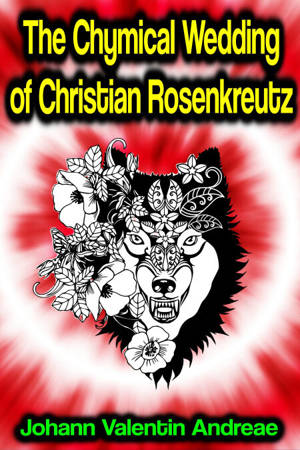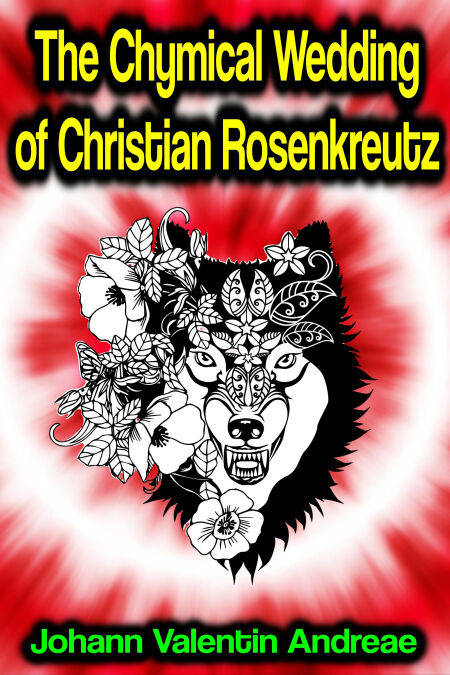
Wil je zeker zijn dat je cadeautjes op tijd onder de kerstboom liggen? Onze winkels ontvangen jou met open armen. Nu met extra openingsuren op zondag!
- Afhalen na 1 uur in een winkel met voorraad
- Gratis thuislevering in België vanaf € 30
- Ruim aanbod met 7 miljoen producten
Wil je zeker zijn dat je cadeautjes op tijd onder de kerstboom liggen? Onze winkels ontvangen jou met open armen. Nu met extra openingsuren op zondag!
- Afhalen na 1 uur in een winkel met voorraad
- Gratis thuislevering in België vanaf € 30
- Ruim aanbod met 7 miljoen producten
Zoeken
€ 7,99
+ 7 punten
Uitvoering
Omschrijving
The Chymical Wedding of Christian Rosenkreutz - Johann Valentin Andreae - The Chymical Wedding of Christian Rosenkreutz (German: Chymische Hochzeit Christiani Rosencreutz anno 1459) is a German book edited in 1616 in Strasbourg. Its anonymous authorship is attributed to Johann Valentin Andreae. The Chymical Wedding is often described as the third of the original manifestos of the mysterious "Fraternity of the Rose Cross" (Rosicrucians), although it is markedly different from the Fama Fraternitatis and Confessio Fraternitatis in style and in subject matter.It is an allegoric romance (story) divided into Seven Days, or Seven Journeys, like Genesis, and recounts how Christian Rosenkreuz was invited to go to a wonderful castle full of miracles, in order to assist the Chymical Wedding of the king and the queen, that is, the husband and the bride.
This manifesto has been a source of inspiration for poets, alchemists (the word "chymical" is an old form of "chemical" and refers to alchemy—for which the 'Sacred Marriage' was the goal) and dreamers, through the force of its initiation ritual with processions of tests, purifications, death, resurrection, and ascension and also by its symbolism found since the beginning with the invitation to Rosenkreutz to assist this Royal Wedding.
Johannes Valentinus Andreae (17 August 1586 – 27 June 1654), a.k.a. Johannes Valentinus Andreä or Johann Valentin Andreae, was a German theologian, who claimed to be the author of an ancient text known as the Chymische Hochzeit Christiani Rosencreutz anno 1459 (published in 1616, Strasbourg; in English Chymical Wedding of Christian Rosenkreutz in 1459). This became one of the three founding works of Rosicrucianism, which was both a legend and a fashionable cultural phenomenon across Europe in this period.
Andreae was a prominent member of the Protestant utopian movement which began in Germany and spread across northern Europe and into Britain under the mentorship of Samuel Hartlib and John Amos Comenius. The focus of this movement was the need for education and the encouragement of sciences as the key to national prosperity. But like many vaguely-religious Renaissance movements at this time, the scientific ideas being promoted were often tinged with hermeticism, occultism and neo-Platonic concepts. The threats of heresy charges posed by rigid religious authorities (Protestant and Catholic) and a scholastic intellectual climate often forced these activists to hide behind fictional secret societies and write anonymously in support of their ideas, while claiming access to "secret ancient wisdom".
This manifesto has been a source of inspiration for poets, alchemists (the word "chymical" is an old form of "chemical" and refers to alchemy—for which the 'Sacred Marriage' was the goal) and dreamers, through the force of its initiation ritual with processions of tests, purifications, death, resurrection, and ascension and also by its symbolism found since the beginning with the invitation to Rosenkreutz to assist this Royal Wedding.
Johannes Valentinus Andreae (17 August 1586 – 27 June 1654), a.k.a. Johannes Valentinus Andreä or Johann Valentin Andreae, was a German theologian, who claimed to be the author of an ancient text known as the Chymische Hochzeit Christiani Rosencreutz anno 1459 (published in 1616, Strasbourg; in English Chymical Wedding of Christian Rosenkreutz in 1459). This became one of the three founding works of Rosicrucianism, which was both a legend and a fashionable cultural phenomenon across Europe in this period.
Andreae was a prominent member of the Protestant utopian movement which began in Germany and spread across northern Europe and into Britain under the mentorship of Samuel Hartlib and John Amos Comenius. The focus of this movement was the need for education and the encouragement of sciences as the key to national prosperity. But like many vaguely-religious Renaissance movements at this time, the scientific ideas being promoted were often tinged with hermeticism, occultism and neo-Platonic concepts. The threats of heresy charges posed by rigid religious authorities (Protestant and Catholic) and a scholastic intellectual climate often forced these activists to hide behind fictional secret societies and write anonymously in support of their ideas, while claiming access to "secret ancient wisdom".
Specificaties
Betrokkenen
- Auteur(s):
- Uitgeverij:
Inhoud
- Aantal bladzijden:
- 123
- Taal:
- Engels
Eigenschappen
- Productcode (EAN):
- 9783347635371
- Verschijningsdatum:
- 1/05/2022
- Uitvoering:
- E-book
- Beveiligd met:
- Digital watermarking
- Formaat:
- ePub

Alleen bij Standaard Boekhandel
+ 7 punten op je klantenkaart van Standaard Boekhandel
Beoordelingen
We publiceren alleen reviews die voldoen aan de voorwaarden voor reviews. Bekijk onze voorwaarden voor reviews.











